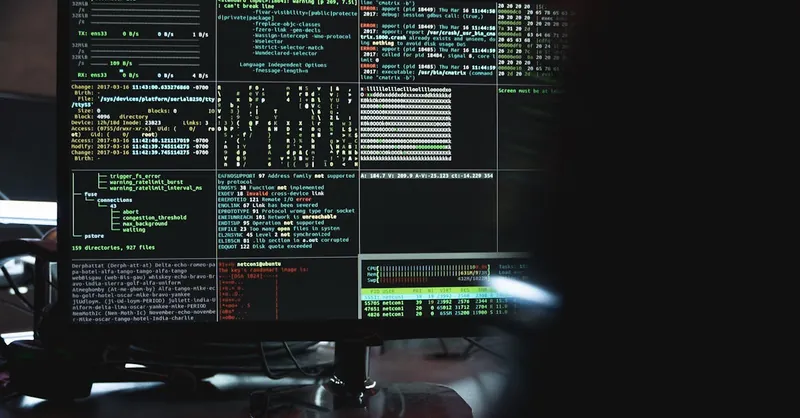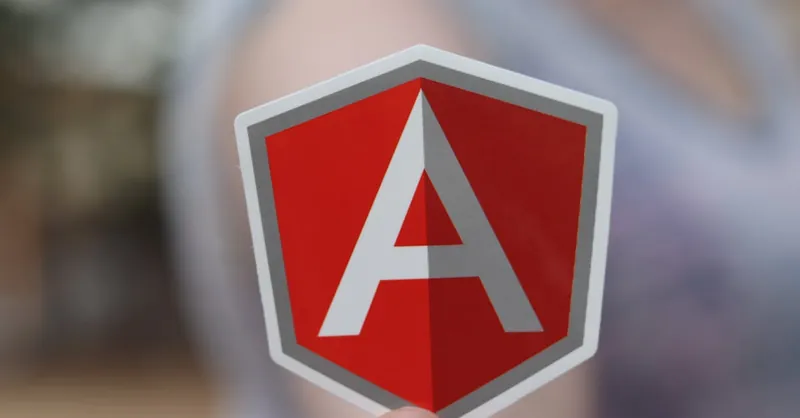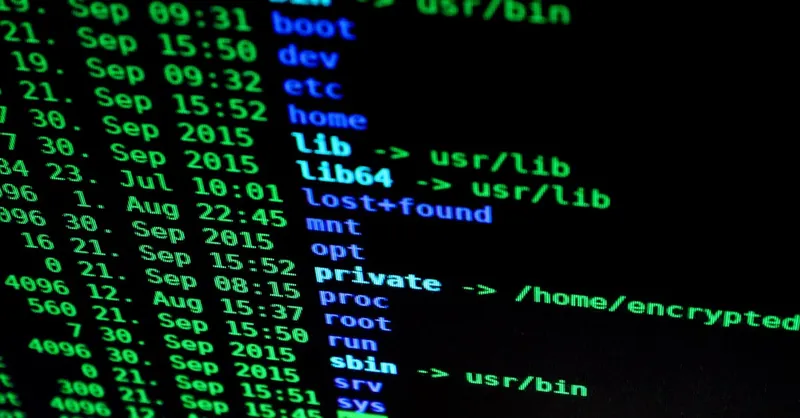Best Hacking Books for Beginners: Top Picks for Ethical Hackers
Category: Ethical Hacking
Unlock Your Ethical Hacking Journey with the Best Books
If you’re stepping into the world of ethical hacking, you probably know that mastering this skill requires a strong foundation built on trustworthy resources. Whether you’re a complete novice or someone with basic tech savvy, finding the right hacking books can be overwhelming given the sheer volume of options available. You may be looking for a resource that not only introduces core concepts clearly but also gradually escalates to practical scripting and penetration testing techniques. This is where curated recommendations tailored specifically for beginners become invaluable. On Beginner Hackers Hub, we understand your need for comprehensive yet accessible learning material that cuts through the noise and accelerates your knowledge acquisition.
This post focuses on the best hacking books that provide a perfect mix of theory, practical tutorials, and real-world applications for aspiring ethical hackers just like you. By carefully analyzing top-ranking resources on Google, we’ve crafted an outline that walks you through must-read titles, what topics they cover, and how they align with your learning goals. You’ll also find insights into different hacking disciplines and how specific books address them.
Dive in if you’re ready to build your hacking skills on a solid, ethical foundation and avoid getting lost in confusing or outdated content. These books will help you sharpen your understanding of cybersecurity challenges and equip you with hands-on skills to advance confidently in this exciting field.
- Unlock Your Ethical Hacking Journey with the Best Books
- Why Reading the Right Books is Crucial for Beginner Ethical Hackers
- Top 5 Must-Read Hacking Books for Complete Beginners
- 1. “Hacking: The Art of Exploitation” by Jon Erickson
- 2. “The Web Application Hacker’s Handbook” by Dafydd Stuttard and Marcus Pinto
- 3. “Penetration Testing: A Hands-On Introduction to Hacking” by Georgia Weidman
- 4. “Metasploit: The Penetration Tester’s Guide” by David Kennedy, Jim O’Gorman, Devon Kearns, and Mati Aharoni
- 5. “Cybersecurity for Beginners” by Raef Meeuwisse
- Books That Teach Foundational Cybersecurity Concepts
- Practical Scripting and Programming Books for Hackers
- Resources Focused on Penetration Testing and Vulnerability Assessment
- Books on Advanced Topics for Intermediate Hackers
- How to Choose the Best Book for Your Learning Path
- Supplementing Books with Online Labs and Tutorials
- Keeping Your Knowledge Up-to-Date – The Importance of Continuous Learning in Cybersecurity
- Where to Find Reliable Book Recommendations and Community Support
Why Reading the Right Books is Crucial for Beginner Ethical Hackers
Embarking on your ethical hacking journey without a solid foundation in cybersecurity principles is like setting out on a complex expedition without a map. The significance of reading the right books cannot be overstated—these resources provide you with the essential framework and vocabulary needed to understand how hacking techniques work, why certain vulnerabilities exist, and how to exploit or protect against them in a responsible manner. For beginner ethical hackers, structured learning through carefully selected books ensures that foundational concepts such as network protocols, system architecture, cryptography, and ethical standards are mastered step-by-step, minimizing confusion and avoiding common pitfalls.
Additionally, quality hacking books cultivate a disciplined approach to developing skills that prioritize safety and legality, which is critical for ethical hacking practice. They bridge the gap between theoretical knowledge and hands-on experimentation by providing progressive tutorials that gradually escalate in complexity. Without this structured guidance, beginners may fall prey to outdated or incorrect information, which can lead to ineffective learning or misuse of hacking tools. In essence, investing time in well-regarded hacking books accelerates your learning curve, builds confidence, and supports a responsible path to becoming a skilled ethical hacker.

Image courtesy of Antoni Shkraba Studio
Top 5 Must-Read Hacking Books for Complete Beginners
Starting your ethical hacking education with the right books can make all the difference in building strong foundational skills and maintaining motivation. To help you kick off your journey effectively, we've compiled a list of the top 5 beginner-friendly hacking books that stand out for their clarity, practical approach, and ethical focus. Each of these books is tailored to newcomers and provides a unique blend of theory, hands-on exercises, and real-world examples, ensuring you not only understand hacking concepts but also gain practical experience.
1. “Hacking: The Art of Exploitation” by Jon Erickson
- Target Audience: Beginners with a basic understanding of programming and computer systems
- Unique Strengths: Combines deep technical theory with practical exercises; covers buffer overflows, shellcode, and network communications
- Why It’s Essential: This book demystifies complex hacking techniques by breaking down the underlying mechanics, empowering you to grasp how exploits work from the ground up
2. “The Web Application Hacker’s Handbook” by Dafydd Stuttard and Marcus Pinto
- Target Audience: Beginners interested in web application security
- Unique Strengths: Step-by-step guide to uncovering common web vulnerabilities like SQL injection and XSS; rich with practical tools and methodologies
- Why It’s Essential: As web applications are prime targets for hackers, this book builds your skills in identifying and responsibly exploiting web-based security flaws
3. “Penetration Testing: A Hands-On Introduction to Hacking” by Georgia Weidman
- Target Audience: Absolute beginners and intermediate learners curious about penetration testing tools and workflows
- Unique Strengths: Hands-on tutorials covering Metasploit, network attacks, and mobile hacking with easy-to-follow labs
- Why It’s Essential: Its practical, lab-centric approach fosters active learning, bridging the gap between theoretical concepts and real-life penetration testing scenarios
4. “Metasploit: The Penetration Tester’s Guide” by David Kennedy, Jim O’Gorman, Devon Kearns, and Mati Aharoni
- Target Audience: Beginners aiming to master one of the most popular penetration testing frameworks
- Unique Strengths: Detailed explanations of Metasploit modules coupled with practical exploitation techniques
- Why It’s Essential: This book equips you with the skills to harness Metasploit effectively—a crucial tool in any ethical hacker’s toolkit
5. “Cybersecurity for Beginners” by Raef Meeuwisse
- Target Audience: Total beginners with little to no prior technical knowledge
- Unique Strengths: Broad overview of cybersecurity principles, including threat landscapes, defense mechanisms, and ethical considerations
- Why It’s Essential: Perfect for building a solid cybersecurity mindset before diving deeper into hacking techniques
These books form a comprehensive learning path that builds foundational knowledge, introduces you to essential tools, and gradually develops the hands-on skills necessary for ethical hacking. By focusing on these beginner-friendly titles, you ensure your learning stays relevant, efficient, and aligned with the ethical standards essential for a responsible hacker.

Image courtesy of Tima Miroshnichenko
Books That Teach Foundational Cybersecurity Concepts
Before diving into the practical aspects of hacking, it’s crucial for beginners to build a strong grasp of foundational cybersecurity concepts that form the backbone of ethical hacking. Understanding the core principles behind networks, communication protocols, encryption, and security mechanisms empowers aspiring hackers to recognize attack surfaces and anticipate potential vulnerabilities. The best beginner hacking books on this topic do more than just list facts—they offer clear explanations of how data flows across networks, the role of protocols such as TCP/IP and HTTP, and critical security concepts like confidentiality, integrity, and availability (CIA triad). Grasping these fundamentals is key to developing the analytical mindset required for effective penetration testing and threat assessment.
Here are some key areas these foundational books typically cover:
- Networking Basics: Concepts such as IP addressing, subnetting, routing, DNS, and network topologies.
- Security Protocols: Understanding SSL/TLS, firewalls, VPNs, and commonly exploited protocol weaknesses.
- Encryption & Cryptography: Basics of symmetric and asymmetric encryption, hashing algorithms, and digital signatures.
- System Architecture: How operating systems handle permissions, memory, and processes, which reveals potential security holes.
- Threat Models & Ethical Frameworks: Differentiating types of attacks and attackers, and embracing legal and ethical guidelines.
Books that focus on these areas provide beginners with the critical vocabulary and context necessary for further studies in vulnerability analysis and exploit development. They ensure you don’t just learn hacking tactics as isolated tricks but appreciate the why and how behind every security weakness and defense measure. Armed with this knowledge, you’ll be better equipped to follow advanced tutorials and real-world hacking scenarios with confidence and purpose.
Some highly recommended titles in this foundational category include:
- “Network Security Essentials” by William Stallings
- “Computer Networking: A Top-Down Approach” by Kurose and Ross
- “Cryptography and Network Security” by William Stallings
These books emphasize building a solid cybersecurity base that naturally leads to more hands-on ethical hacking skills. Investing your time in mastering these concepts early on will streamline your learning path, reduce trial-and-error frustrations, and ultimately make your journey to becoming a skilled ethical hacker smoother and more impactful.

Image courtesy of Markus Winkler
Practical Scripting and Programming Books for Hackers
To truly excel as an ethical hacker, developing strong scripting and programming skills is imperative. Practical coding knowledge not only enables you to automate repetitive tasks but also helps in creating custom exploits, analyzing malware, and dissecting vulnerabilities. Several programming languages are fundamental to hacking—Python for its versatility and ease of use, Bash for efficient command-line automation on Unix systems, and PowerShell for powerful scripting within the Windows ecosystem. Beginner-friendly books that focus on these languages, tailored for hacking contexts, can accelerate your ability to perform real-world security assessments and build practical tools.
When selecting practical scripting books for hacking, look for resources that emphasize:
- Hands-on examples related to cybersecurity tasks like scanning, enumeration, and payload delivery
- Clear explanations of scripting syntax alongside hacking-specific applications
- Progressive learning paths from basic programming concepts to advanced automation and exploitation techniques
Some of the highly recommended books in this category include:
-
“Black Hat Python: Python Programming for Hackers and Pentesters” by Justin Seitz
This book dives into Python’s use in penetration testing, covering topics like network scanning, web hacking, and creating custom malware. Its practical approach empowers beginners to write scripts that directly support hacking activities. -
“Linux Bash Scripting Essentials” by Sinny Kumari
Focused on Bash scripting, this book guides readers through automating tasks, managing files, and harnessing command-line tools in Linux environments, essential for hacking Linux-based systems. -
“Learn Windows PowerShell in a Month of Lunches” by Don Jones and Jeffrey Hicks
Tailored for Windows users, this book introduces PowerShell scripting through bite-sized lessons, enabling beginners to streamline Windows administration and exploit scripting for penetration testing.
Mastering scripting with these books complements your theoretical knowledge and enhances your ethical hacking toolkit by enabling you to write custom utilities, parse complex data, and interact programmatically with target systems. As hacking scenarios grow more sophisticated, the ability to script effectively becomes an indispensable skill that increases your efficiency and adaptability in cybersecurity roles.

Image courtesy of Antoni Shkraba Studio
Resources Focused on Penetration Testing and Vulnerability Assessment
Once you have built a solid understanding of cybersecurity fundamentals and scripting basics, the next crucial step in your ethical hacking journey is mastering penetration testing and vulnerability assessment. These areas teach you how to systematically identify, analyze, and exploit security weaknesses in systems, networks, and applications — always with the goal of strengthening defenses. Books focused on these topics provide comprehensive methodologies integrating theory, tools, and real-world scenarios to help beginners transition from passive learners to active testers.
The best penetration testing resources emphasize a hands-on approach, guiding you through the entire assessment lifecycle: from reconnaissance and scanning, through exploitation, to post-exploitation and reporting. They explain key concepts such as vulnerability discovery, risk analysis, and the ethical responsibilities that come with conducting simulated attacks. Additionally, these books often include practical labs using popular penetration testing frameworks like Metasploit, Nmap, and Burp Suite, allowing you to apply techniques in controlled environments that mimic real-world cyber attack conditions.
Key focus areas covered by these books usually include:
- Penetration Testing Phases: Planning, information gathering, vulnerability analysis, exploitation, and reporting.
- Vulnerability Scanning Techniques: Automated and manual approaches to identify security gaps.
- Hands-On Tool Usage: Mastering essential pentesting tools and frameworks through guided exercises.
- Ethical and Legal Considerations: Understanding the boundaries and permissions necessary for responsible penetration testing.
- Writing Effective Reports: Documenting findings clearly and professionally to aid remediation.
Some of the top beginner-friendly penetration testing and vulnerability assessment books to consider adding to your collection are:
- “Penetration Testing: A Hands-On Introduction to Hacking” by Georgia Weidman — This remains a gold standard for beginners due to its clear explanations and lab-focused format.
- “The Web Application Hacker’s Handbook” by Dafydd Stuttard and Marcus Pinto — Ideal for those focusing on web vulnerabilities.
- “Metasploit: The Penetration Tester’s Guide” by David Kennedy et al. — For mastering the industry-leading exploitation framework.
By studying these books, you will gain practical skills to proficiently conduct vulnerability assessments and penetration tests, essential competencies sought by security professionals. Integrating their methodologies into your learning strategy ensures you don’t just understand the concepts behind hacking but can actively apply them ethically to safeguard systems against threats.

Image courtesy of Tima Miroshnichenko
Books on Advanced Topics for Intermediate Hackers
As you progress beyond the basics of ethical hacking, diving into advanced topics like exploit development, cryptography, and web application security becomes essential for enhancing your skills and deepening your understanding of cybersecurity threats. Intermediate-level hackers need resources that bridge foundational knowledge with more complex concepts, allowing them to develop sophisticated attack strategies as well as robust defensive techniques. Books focused on these advanced areas provide detailed insights into how vulnerabilities are discovered and exploited at a low level, how cryptographic systems secure data, and how modern web applications can be both attacked and secured.
Key advanced topics covered in these books typically include:
- Exploit Development: Understanding buffer overflows, format string vulnerabilities, heap manipulation, and crafting shellcode.
- Advanced Cryptography: Delving deeper into encryption algorithms, cryptanalysis, key management, and cryptographic protocol weaknesses.
- Web Application Security: Exploring complex attacks such as advanced SQL injection, server-side request forgery (SSRF), deserialization vulnerabilities, and secure coding practices.
- Reverse Engineering: Techniques to analyze compiled binaries and malware to find security flaws or understand malicious behavior.
- Advanced Penetration Testing: Using custom scripts and tools for stealthy exploitation and bypassing modern defenses like ASLR and DEP.
Some authoritative books that cater to this intermediate to advanced audience include:
- “The Shellcoder’s Handbook” by Jack Koziol et al. — A thorough guide to exploit development and binary vulnerability analysis.
- “Applied Cryptography” by Bruce Schneier — A widely respected resource for deep cryptographic concepts and practical algorithm implementations.
- “Black Hat Python” by Justin Seitz — While accessible to intermediate learners, it also covers sophisticated scripting techniques useful in exploit creation and post-exploitation.
- “Web Application Security: Exploitation and Countermeasures for Modern Web Applications” by Andrew Whitaker and Daniel P. Newman — A detailed dive into advanced web security threats and defenses.
Engaging with these advanced hacking books not only sharpens your technical prowess but also prepares you for professional certifications and real-world cybersecurity challenges. By mastering these complex subjects, you become equipped to identify intricate vulnerabilities and implement cutting-edge security solutions, setting the stage for a successful career as an ethical hacker or cybersecurity specialist.

Image courtesy of RealToughCandy.com
How to Choose the Best Book for Your Learning Path
Selecting the right ethical hacking book tailored to your current skill level, learning style, and specific goals is crucial for maximizing your progress and avoiding frustration. Since the field of cybersecurity is vast and diverse, beginner hackers often face an overload of resources that vary widely in depth, focus, and teaching methods. Making a strategic choice based on your unique needs ensures that the materials you study build on what you already know, complement your preferred way of learning, and align with your ultimate hacking objectives.
Factors to Consider When Choosing a Hacking Book
- Assess Your Current Skill Level:
- If you’re a total beginner with limited or no technical background, foundational books that cover cybersecurity basics and ethical hacking principles are ideal. These will build your vocabulary and understanding of core concepts before jumping into complex tutorials.
- For learners with some programming or networking experience, books offering hands-on labs and intermediate tools can accelerate skill acquisition.
-
Avoid jumping into advanced exploit development or penetration testing manuals too early, as this can cause confusion or overwhelm.
-
Identify Your Learning Style:
- Visual learners may benefit from books rich in diagrams, screenshots, and flowcharts that illustrate concepts and workflows.
- Kinesthetic learners should prioritize resources featuring practical labs, step-by-step exercises, and coding challenges to apply knowledge actively.
-
Reading/writing learners often thrive on comprehensive explanations, detailed examples, and quizzes offered in text-heavy formats.
-
Define Your Ethical Hacking Goals:
- Are you interested in web application security, network penetration testing, or malware analysis? Choosing books that specialize in your area of interest helps deepen relevant expertise.
- If your goal is certification preparation (e.g., CEH, OSCP), consider textbooks aligned with these credentials.
-
For those aiming to become versatile security professionals, a mix of foundational, scripting, and penetration testing books will provide balanced knowledge.
-
Check for Currency and Relevance:
- Cybersecurity is fast-evolving, so prioritize recently updated editions that reflect current threats, tools, and defense mechanisms.
- Books that include supplemental online resources, labs, or active communities offer ongoing value beyond the printed content.
By thoughtfully evaluating these factors, you ensure your ethical hacking education remains focused, efficient, and engaging. Choosing books that resonate with your skill level and learning preferences will help you build a strong cybersecurity foundation and steadily advance your practical hacking competencies with confidence.

Image courtesy of Antoni Shkraba Studio
Supplementing Books with Online Labs and Tutorials
While books provide the essential theoretical foundation and structured knowledge needed to understand ethical hacking concepts, pairing your reading with practical online labs and interactive tutorials is crucial to solidify these skills. Ethical hacking is inherently hands-on—real proficiency comes from applying what you learn in controlled, virtual environments where you can safely experiment, test exploits, and analyze vulnerabilities without legal risks. Complementing your study with reputable online hacking platforms, virtual labs, and simulation tools enhances comprehension, accelerates skill acquisition, and prepares you for real-world cybersecurity scenarios.
Why Practice Matters for Beginner Hackers
- Apply Theory to Real-World Scenarios: Books often explain techniques and concepts, but practical labs allow you to experience vulnerabilities firsthand. This contextual learning deepens understanding and retention.
- Build Confidence with Tools and Frameworks: Platforms like Hack The Box, TryHackMe, and OverTheWire provide environments where beginners can use popular hacking tools such as Metasploit, Nmap, and Burp Suite in guided and gamified settings.
- Develop Problem-Solving Skills: Interactive challenges simulate real attack and defense situations, encouraging critical thinking and adaptability—skills that no book alone can teach.
- Stay Updated with Current Techniques: Online labs frequently update their content to reflect the latest threats, exploits, and defenses, keeping your knowledge fresh alongside the foundational theories from books.
Recommended Online Resources to Pair with Your Reading
- Hack The Box (HTB): A widely used platform offering beginner to advanced challenges that cover network exploitation, web hacking, and cryptography.
- TryHackMe: Ideal for beginners, it provides guided tutorials, learning paths, and hands-on exercises aligned with ethical hacking books.
- OverTheWire: Focuses on basic Linux commands and security concepts through progressively harder wargames.
- PentesterLab: Offers practical web hacking labs that complement books like The Web Application Hacker’s Handbook.
- CyberSecLabs: Realistic virtual labs that teach scanning, exploitation, and post-exploitation techniques.
By integrating these virtual environments into your study routine, you transform theoretical knowledge from books into actionable hacking skills. This combination of detailed reading and immersive practice creates a balanced learning ecosystem, essential for beginner ethical hackers who want to quickly and effectively develop competence in penetration testing and cybersecurity defense.

Image courtesy of Pixabay
Keeping Your Knowledge Up-to-Date – The Importance of Continuous Learning in Cybersecurity
In the fast-paced world of cybersecurity, continuous learning is not just beneficial—it’s essential. New vulnerabilities, attack methods, and defense technologies emerge daily, making it critical for beginner ethical hackers to stay current with the latest trends and tools. Relying solely on static books can leave gaps in your knowledge, as even the best hacking texts quickly become outdated in this ever-evolving landscape. To build a robust and adaptive ethical hacking skillset, integrating persistent learning habits is key.
Why Ongoing Education Matters for Beginner Ethical Hackers
- Cyber Threats Evolve Constantly: Attackers innovate constantly by developing new exploits and malware. Keeping up-to-date allows you to understand cutting-edge threats and how to defend against them.
- Tools and Frameworks Regularly Update: Popular penetration testing tools like Metasploit, Nmap, and Burp Suite frequently release new features and patches. Staying informed ensures you’re using these tools effectively and securely.
- Security Best Practices Change: Security standards, compliance regulations, and ethical guidelines evolve with technology. Ongoing learning helps you remain compliant and ethical in your hacking activities.
- Professional Growth: Employers prioritize candidates who demonstrate a commitment to learning and adapting in cybersecurity roles. Staying current expands your career opportunities and prepares you for certifications.
Recommendations for Staying Current in Cybersecurity
- Subscribe to Leading Cybersecurity Blogs and News Sites: Regularly visit resources like Krebs on Security, ThreatPost, and the SANS Internet Storm Center to monitor emerging vulnerabilities and incident reports.
- Follow Influential Ethical Hackers and Security Researchers on Social Media: Platforms like Twitter and LinkedIn are rich with up-to-the-minute insights and real-time discussions around new exploits and mitigation techniques.
- Engage with Online Cybersecurity Communities: Forums such as Reddit’s r/netsec, Stack Exchange’s Information Security, and specialized Discord groups encourage knowledge exchange, Q&A, and community-driven learning.
- Participate in Capture The Flag (CTF) Competitions and Cybersecurity Challenges: These events simulate real-world hacking scenarios that require you to apply fresh knowledge and problem-solving skills under pressure.
- Enroll in Updated Online Courses and Workshops: Platforms like Cybrary, Udemy, and Pluralsight frequently refresh ethical hacking content to reflect the current threat landscape and toolsets.
By embracing continuous education, beginner ethical hackers ensure their skills remain relevant, practical, and effective against emerging cyber threats. This proactive learning strategy complements the foundational knowledge acquired from books and practical labs, ultimately shaping well-rounded cybersecurity professionals ready to confront modern challenges confidently.

Image courtesy of Lucas Andrade
Where to Find Reliable Book Recommendations and Community Support
Navigating the vast landscape of ethical hacking resources can be challenging, which makes access to trusted book recommendations and supportive communities invaluable for beginner hackers. Engaging with reputable online forums, ethical hacking groups, and specialized blogs not only helps you discover high-quality educational materials but also connects you with experienced practitioners who can offer guidance, answer questions, and share the latest learning trends. These platforms act as knowledge hubs where book suggestions are frequently updated based on current cybersecurity developments, ensuring your reading list remains relevant and practical.
Trusted Online Forums and Ethical Hacking Communities
-
Reddit Communities (e.g., r/AskNetsec, r/ethicalhacking): These subreddits feature discussions on the best beginner hacking books, practical advice, and real-world experiences from cybersecurity professionals and enthusiasts. Participating in these forums helps you receive personalized recommendations and stay informed about new editions or emerging resources.
-
Stack Exchange – Information Security: This Q&A platform offers curated knowledge where members often recommend authoritative books and learning paths tailored to different skill levels. The community’s focus on accuracy and expertise makes it a reliable venue for vetting educational materials.
-
Hack The Box and TryHackMe Discord Channels: These active communities provide channels dedicated to resource sharing, including lists of recommended books, tutorials, and courses. Engaging here allows you to learn from peers, join study groups, and get feedback on your progression.
-
Ethical Hacking Blogs and Websites: Sites like HackerOne’s blog, Null Byte (on WonderHowTo), and Cybersecurity Insiders regularly publish curated lists of must-read hacking books and learning guides. They often pair book recommendations with practical tutorials and tool reviews, providing a comprehensive learning ecosystem.
Why Community Support Matters for Beginner Ethical Hackers
- Reliable and Updated Recommendations: Community-driven suggestions tend to highlight books that are well-regarded, recently updated, and relevant to current cybersecurity standards. This reduces the risk of wasting time on outdated or inaccurate resources.
- Motivation and Accountability: Being part of an active ethical hacking community encourages continuous learning by fostering accountability and motivation through shared goals, challenges, and success stories.
- Access to Expert Insights: Seasoned ethical hackers frequently contribute advice on how to approach complex topics, which books to prioritize, and how to supplement reading with hands-on practice.
- Resource Diversity: Communities expose you to a wide range of learning styles and materials, including video tutorials, podcasts, and workshops, helping to tailor your educational journey.
By leveraging these trusted online forums, ethical hacking communities, and specialized blogs, beginner hackers can confidently select quality books and enrich their learning experience with peer support and expert guidance—key ingredients for mastering ethical hacking effectively and responsibly.

Image courtesy of Antoni Shkraba Studio
